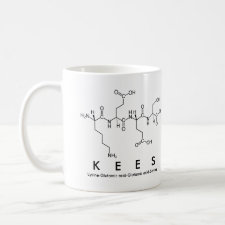
Authors: Koster EHM, Crescenzi C, den Hoedt W, Ensing K, de Jong GJ
Article Title: Fibers coated with molecularly imprinted polymers for solid-phase microextraction.
Publication date: 2001
Journal: Analytical Chemistry
Volume: 73
Issue: (13)
Page numbers: 3140-3145.
DOI: 10.1021/ac001331x
Abstract: The simplicity and flexibility of solid-phase microextraction have been combined with the selectivity of molecularly imprinted polymers (MIPs), Silica fibers were coated reproducible with a 75-mum layer of methacrylate polymer either nonimprinted or imprinted with clenbuterol to compare their extraction characteristics under various conditions. Although the template molecule could be removed effectively from the imprinted polymer, structural analogues of clenbuterol were used for evaluation. The influence of pH on the extractability of brombuterol was investigated. Extraction yields up to similar to 80% were obtained when both types of fibers were used to extract brombuterol from phosphate buffer (pH 7.0). In contrast, yields of about 75 and 15% were obtained when extraction was performed from acetonitrile with imprinted and nonimprinted polymers, respectively, which demonstrates the selectivity of the MIP-coated fiber. Time sorption profiles were measured for the extraction of brombuterol from buffer and acetonitrile at the 10 and 100 ng/mL level with both types of fibers in order to compare extraction characteristics. Equilibrium times of about 30 and 90 min were found for the extraction of brombuterol from acetonitrile and buffer, respectively. The MIP-coated fibers were capable of extracting five structural analogues of clenbuterol from both buffer and acetonitrile, which suggests that the amine alcohol part of these molecules is responsible for interaction with the imprinted polymer, To achieve selective extraction of brombuterol from human urine, MIP-coated fibers were washed with acetonitrile after the extraction. Clean extracts and yields of similar to 45% were obtained, demonstrating the suitability of MIP-coated fibers for the analysis of biological samples



Join the Society for Molecular Imprinting

New items RSS feed
Sign-up for e-mail updates:
Choose between receiving an occasional newsletter or more frequent e-mail alerts.
Click here to go to the sign-up page.
Is your name elemental or peptidic? Enter your name and find out by clicking either of the buttons below!
Other products you may like:
 MIPdatabase
MIPdatabase









